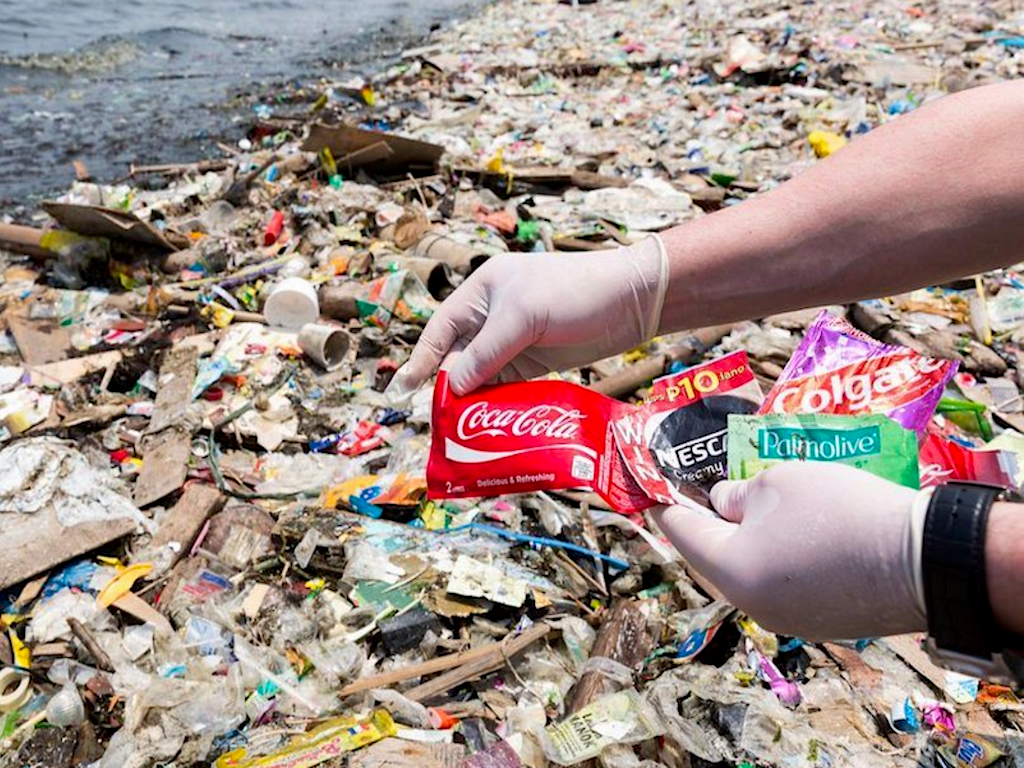Big Bad Brand #2: Coca-Cola
https://www.youtube.com/watch?v=Sq9XDiEDXiU
Other than sharing tubs of New Year goodies, it is also quite customary in Singapore to prepare bottled or canned drinks for guests who come over for visiting. One of the most popular brands of drinks would be Coca-Cola – the star of today’s post. Most of us are aware of this big corporate brand which has evidently managed to establish a global household brand status. However, this comes at a cost, one that is borne by the environment but enjoyed by us.

‘Biggest Contributor’
Just recently, Coca-Cola was sued by a not-for-profit environmental organization, Earth Island Institute, for its deceiving marketing tactic with respect to its sustainability efforts. The brand has ironically been one of the largest contributors to plastic pollution in the world, according to Break Free From Plastic, a global Brand Audit report. The Coca-Cola Company is one of the largest plastic polluters for fuelling the climate crisis (Break Free From Plastic, 2021) and produces 3million tons of plastic packaging globally each year, equivalent to about 200,000 bottles a minute (Schmidt, 2021).

‘5 million plastic bottles’
In the context of Asia, the US company was the first to venture into the People’s Republic of China where it started its productions. Today, Coca-Cola takes up 54.5% of the market share of leading carbonated drinks manufacturers in China (Statista, 2019). Other countries like Hong Kong have thus responded to the growing consumption and recycling issues in Asia by building the city’s first modern bottle recycling plant. This plant is built by one of Coke’s partners, and could possibly pave the way for more sustainable ventures in China. This joint venture by Swire Coca-Cola (Coca-Cola’s bottling company), Baguio Waste Management & Recycling, and Alba, a German recycling group would eventually be able to work at full capacity and capture most of the 5 million plastic bottles a day the city consumes.
This joint venture would eliminate the need for landfills which ties in nicely with Hong Kong’s ambitious goals of eradicating landfills by 2035. But, to what extent would a big brand like Coca-Cola stop single-use plastic? In the next post, we will be looking at the issue on a larger scale – the issue with Coca-Cola and it’s doings on the environment.
- Break Free From Plastic. (2021, October 25). The Coca-Cola Company and PepsiCo named top plastic polluters for the fourth year in a row. Break Free From Plastic. https://www.breakfreefromplastic.org/2021/10/25/the-coca-cola-company-and-pepsico-named-top-plastic-polluters-for-the-fourth-year-in-a-row
- China: Breakdown of carbonated beverage market by company. (n.d.). Statista. Retrieved 30 January 2022, from https://www.statista.com/statistics/1200763/china-breakdown-of-carbonated-beverage-market-by-company/
- Coca-cola sued for deceptive sustainability claims. (2021, June 10). The National Law Review. https://www.natlawreview.com/article/coca-cola-sued-deceptive-sustainability-claims
- Schmidt, B. (2021, July 23). Coca-Cola Takes on a Plastic Crisis It Helped Create. Bloomberg Green . https://www.bloomberg.com/news/articles/2021-07-22/coca-cola-capitalism-meets-asia-s-plastic-disaster-in-hong-kong